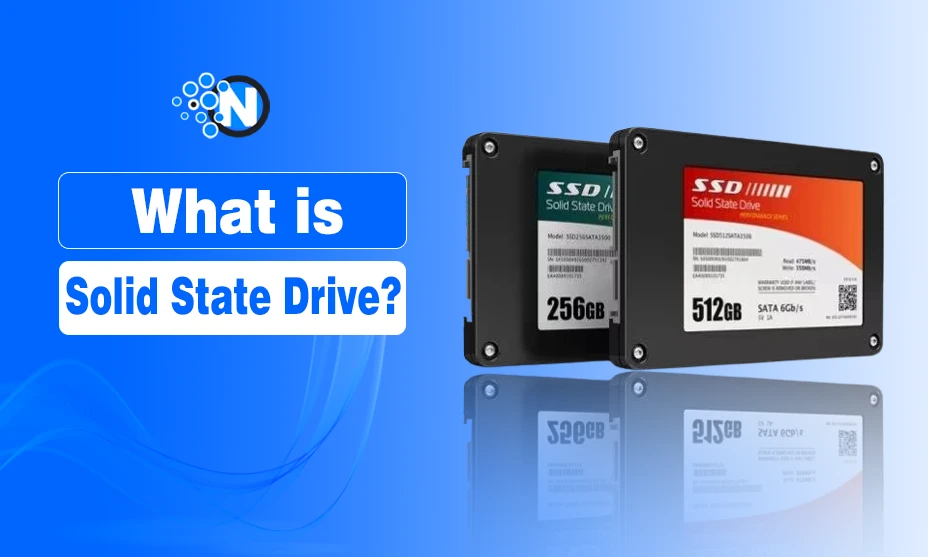
The world of computing has experienced significant improvements in speed and performance with the evolution of solid-state drives (SSD). They have replaced the traditional hard disk drives in a pretty quick session by authorizing their authority and bringing extreme perks into play.
Furthermore, they not only enhance the processing speed but also transfer the data at a relatively faster speed. With time, numerous types of SSDs are available that resonate with the requirements of different individuals. We have developed this guide to mention all the types and overall benefits of SSD for better understanding.
What is a Solid State Drive?
Just like the traditional Hard Disk Drives (HDDs), Solid State Drive is also a storage device for computers and laptops that can store a more significant number of files based on their overall capacity. Unlike HDDs, they feature NAND flash memory to store the data more quickly and effectively.
As a result, you can experience better computing speed when transferring the data from your laptop or PC to an external drive or vice versa. The latest software and tools have made it compulsory for users to pocket this brilliant innovation for better advantages.
Types of Solid State Drive
In the under-section, we have listed different types of solid-state drives you can own according to your preferences or PC requirements.
1. SATA SSDs
SATA SSDs are the most common and popular types because of their ability to connect with PCs through a SATA interface. In this way, you can enjoy exceptional faster speed than traditional HDDs.
However, the SATA connection bandwidth limits the reading and writing speed to some extent to maintain continuous operation during long runs. Among all other types, SATA SSDs are available at low prices. Thus, if you are looking to upgrade from HDD, you can own this without breaking the bank.
2 – NVMe SSDs
Non-volatile Memory Express, also known as NVMe, is another fantastic type of solid-state storage drive. It is relatively faster than the previous types due to the Peripheral Component Interconnect Express (PCIe) interface. By connecting directly with the motherboard, they ensure exceptional reading and writing speed. Thus, gamers and professionals can carry out their high-end activities effortlessly and seamlessly.
3. M.2 SSDs
The third type of solid-state drive is the M.2 SSD. Generally, they don’t feature the traditional SATA or NVMe technology. Hence, you cannot fit them into the motherboard via the interface. Instead, the motherboard features numerous slots. One of them is M.2.
You must fit it directly into the board in the designated place. Ensure that it is fit entirely to deliver efficient storage performance for computers.
4. PCIe SSDs
Lastly, PCIe SSDs are present among the types due to their direct integration with PCIe slots present in the motherboard. As a result, you can overcome the limitations of SATA connections and have exceptional hands-on performance and speed.
Generally, big companies that have to store and process extensive data collection own these drives for better reading and writing speed.
5. SSD Cloud Servers:
In the field of cloud computing, cloud servers are transforming traditional storage into cloud storage. Users are able to save their data on cloud servers through this technology. Multiple cloud storage services offer multiple free and customized plans on the basis of cloud storage for users to store their data.
Benefits of Solid State Drive
After understanding the types, it’s time to understand the benefits of a solid-state drive to make up the mind to own them.
1. Speed and Performance
One of the most excellent perks of SSDs over HDDs is that they can read and write data at an immense pace. Consequently, it leads to fast boot times and loads the applications quickly. Also, you can have a smooth experience with SSDs.
The increase in speed will be more obvious when you browse the Internet and open multiple tabs simultaneously. Hence, it delivers the lightning-fast data transfer rates.
2. Reliability and Durability
Traditional storage drives are not very durable and can be crashed at any moment, resulting in the loss of all essential files and information. Therefore, you must switch to SSDs as they are more reliable. They are also less susceptible to physical damage and drops to guarantee a longer working span. Based on these perks, you can rely on these storage drives for more extended duration.
3. Energy Efficiency
Sustainable energy solutions have become an absolute requirement in this modern world because of the increased depletion of non-renewable energy sources. That’s why it becomes necessary for computer or laptop users to switch to low energy-consuming solutions like SSDs to benefit the environment.
These storage drives require less power to operate in the long run. So, you can conserve more electricity units and power.
4. Compact and Lightweight
We previously described that the SSDs are very sturdy and cannot get physical damage easily. Additionally, they feature a compact body. It not only gives them a definite shape but also makes them lightweight.
Hence, you can easily own them for your laptops and ultrabooks to enhance their portability. With this approach, you can have your hands on performance and comfort simultaneously.
5. Enhanced Multitasking
As mentioned earlier, solid-state drives offer faster reading and writing speeds. So they can better resonate with processors to improve their functioning and operational capability. Also, this benefit ensures that you can multitask.
Handling multiple tasks is quite crucial in numerous industries, including healthcare, finance, and software development industries, to deliver projects on time.
6. Reduced Heat Generation
Hard disk drives have one of the most critical drawbacks in the form of high heat generation because of their mechanical components. However, there is no such case with solid-state drives, and they prevent your computer or laptop from getting overheated.
Final Verdicts
Solid State Drives have become an integral source of modern-day computers because of their exceptional reading and writing speed. As a result, they can enhance the user experience by providing them with the opportunity to store their data and files in a more reliable environment.
Also, these storage solutions are more sturdy and durable to deliver the performance to you in the long run. Understand different types of SSDs and benefits to determine the one that can fulfil your requirements.




